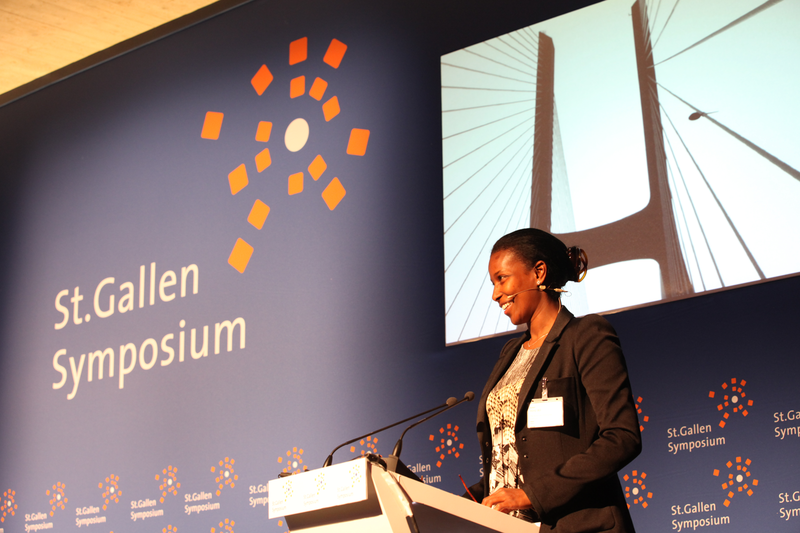Don't Silence Graduation Speakers
The best response to allegedly villainous speakers is to let them speak and make them wish they hadn't.

"Oh, that my enemy would write a book," goes the old wish, coined by someone who knew there is no better way to expose fools than through their own words. It's an idea that deserves consideration from the college students and faculty unhappy with their schools' choice in commencement speakers.
The usual response to such invitations is to demand that they be revoked. This year, critics cowed Brandeis into yanking its offer to anti-Islam activist Ayaan Hirsi Ali. Outrage at Rutgers prompted former Secretary of State Condoleezza Rice to withdraw, and when howls when up at Smith, International Monetary Fund Managing Director Christine Lagarde suddenly found better things to do.
Former University of California, Berkeley Chancellor Robert Birgeneau pulled out at Haverford over criticism of his university police's use of batons and pepper spray on Occupy Wall Street demonstrators. Data from the Foundation for Individual Rights in Education show that incidents like these have gotten far more common over the past decade.
It's understandable that students might prefer not to share their big day with someone who has said or done things that they find grossly objectionable. But forcing them out or driving them away is the wrong response for all sorts of reasons.
One is that hecklers shouldn't have a veto in what is supposed to be a place of free inquiry. When Skidmore College issued an invitation to a former mining company executive, a student who opposed it told a faculty meeting, "It's my commencement. Not hers. Or yours." Actually, it belongs to Skidmore, not the student, who is merely a temporary member of the college community. If you detest whom your school invited, maybe you chose the wrong school.
Disinviting also carries the stain of censorship, implying that college graduates should not have to endure views that contradict their own. But what's the point of education if it doesn't confer the thinking skills to evaluate and reject wrong views?
Blocking a speaker deprives the critics of the chance to respond in a persuasive and forceful way. When Rice is induced to stay away from Rutgers, the topic of conversation is whether her critics had a right to demand her absence. Had she shown up, they could have focused attention on a far more important issue: her culpability in the disastrous invasion of Iraq.
Likewise with Birgeneau and Lagarde. You think they are bad actors? In their absence, most of the people attending those commencements will remain ignorant of their records.
If Ali dared to repeat her slander that Muslims all belong to the same "nihilistic cult of death," she would repel far more listeners than she would persuade. Anytime a speaker with a controversial record comes to campus, it's a gala opportunity to remind the audience of what they have to account for.
Why silence speakers when you can denounce or even shame them? When President Barack Obama spoke at Notre Dame in 2009, anti-abortion advocates flocked to condemn his policies. A plane pulled a banner picturing the remains of a fetus with the message: "10 Week Abortion."
At Sen. Rick Santorum's 2003 appearance at St. Joseph's University, some students attached rainbow-colored tassels to their mortarboards in a silent show of support for gay rights. At the UC Berkeley law school ceremony in 2011, protesters handed out orange ribbons to express outrage at former Bush administration official John Yoo's complicity in torture.
When former New York Mayor Rudy Giuliani spoke to graduating students at Syracuse in 2002, some waved their wallets—reminding him of Amadou Diallo, an unarmed Bronx man killed by a hail of police bullets after he reached into his jacket and pulled out a billfold.
It wouldn't be hard to find provocative ways to disavow some of this year's invitees while allowing them to say their piece. Birgeneau's critics could splatter their gowns with yellow paint to match the pepper spray used on seated demonstrators.
Rice's detractors might sport atomic symbols to evoke the weapons of mass destruction that Iraq didn't have. Islamic students and parents could have greeted Ali with signs saying, "This is what a peace-loving Muslim looks like."
The best response to allegedly villainous speakers is not to turn them into martyrs by denying them a forum. The best response is to let them speak and make them wish they hadn't.


Show Comments (48)